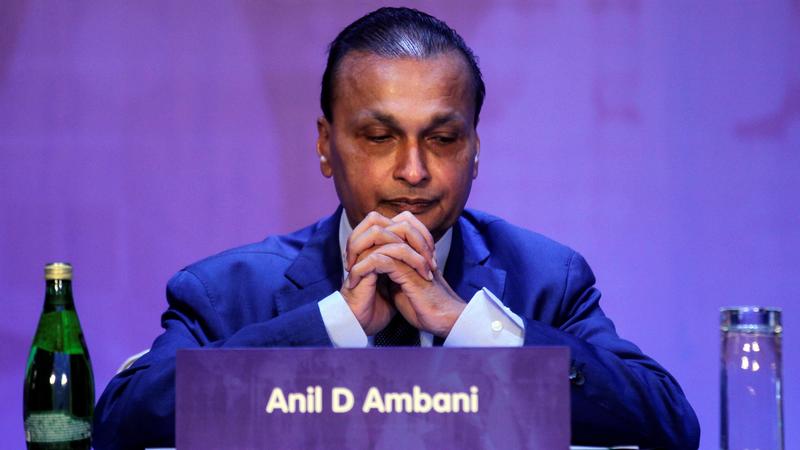Published 18:44 IST, August 23rd 2024
RHFL management defies board diktat on lending practices; Anil Ambani mastermind: Sebi order
The Reliance Housing Finance Ltd (RHFL) board had issued strong directives to stop such lending practices and review corporate loans regularly.

The Reliance Home Finance Ltd board had warned of extending loans to unworthy creditors, the capital markets regulator Sebi said in its ruling, calling Anil Ambani the kingpin of the fund diversion.
Significant irregularities were noticed in RHFL's loan approval process, including deviations from the company's credit policy and incomplete documentation, according to the order.
The Reliance Housing Finance Ltd (RHFL) board had issued strong directives to stop such lending practices and review corporate loans regularly, but the company's management ignored these orders.
"This is also a peculiar case where the company's management has brazenly defied the diktat of its own Board that had raised concerns about General Purpose Corporate Loan (GPCL)lending," Sebi said in its order passed on Thursday.
"By preponderance of probability, the mastermind behind the fraudulent scheme is the Chairman of ADAG Anil Ambani," Sebi said.
The fund diversion findings stem from two critical reports - one by PWC, the statutory auditor of RHFL, and the other by Grant Thornton, a forensic auditor appointed by Bank of Baroda, the lead bank in the consortium of lenders to RHFL.
According to PWC's report, there was an exponential increase in the loans disbursed under RHFL's General Purpose Corporate Loan product. The disbursed amount jumped from around Rs 900 crore on March 31, 2018, to about Rs 7,900 crore by March 31, 2019.
In its order, Sebi noted that PWC flagged several critical issues, including borrowers with negative net worth, limited or no revenue or profit; no business activities other than borrowing from RHFL for onward lending; low equity capital compared to the debt raised, incorporation of some borrowing companies shortly before receiving loans and in some cases, the loan sanction dates were found to be on the same date as the date of application for loan or even before the dates of applications made by these borrowers.
Further, Bank of Baroda's forensic audit, conducted from April 2016 to June 2019, further deepened concerns. The audit's first report, published in January 2020, found that RHFL disbursed Rs 14,577.68 crore as General Purpose Corporate Loans during the review period. Out of this, Rs 12,487.56 crore was directed to 47 potentially indirectly linked entities (PILEs).
As of October 31, 2019, Rs 7,984.39 crore remained outstanding, with Rs 2,727.59 crore classified as Non-Performing Assets (NPAs). Notably, eight of these PILEs were initially related to Reliance Power and Reliance Infrastructure -- both group companies of RHFL --but were reclassified as non-related just before receiving loans, amounting to Rs 1,323.43 crore.
The second report, released in May 2020, focused on fund tracing and unveiled that RHFL disbursed Rs 12,573.06 crore across 150 loan cases involving PILEs. Of this, Rs 8,884.46 crore in 100 loan cases remained outstanding. The audit traced the flow of funds to 43 PILEs, which subsequently transferred them to 19 entities, 14 of which were reportedly found to be Group Companies/other PILE entities bearing close nexus with the Promoter group.
Among the largest recipients were Reliance Capital Ltd (Rs 2,359.91 crore) and Reliance Commercial Finance Ltd (Rs 2,278.58 crore).
Additionally, Reliance Infrastructure Ltd received (Rs 1559.78 crore), followed by Reliance Home Finance Ltd (Rs 1514.46 crore), Reliance Big Entertainment (Rs 254.09 crore), Reliance Broadcast Network (Rs 218.19 crore), Reliance Business Broadcast News Holdings (Rs 200.50 crore), Reliance Power (Rs 135.64 crore) and Crest Logistics And Engineers (Rs 106 crore),
Gamesa Investment Management (Rs 100 crore), Kunjbihari Developers (Rs 70 crore), Reliance Mediaworks Financial Services (Rs 14.73 crore), Reliance Nippon Life Insurance (Rs 11 crore and Unlimit IOT Private Limited (Rs 5 crore) were also among the receivers.
On further analysis of usage of the loans advanced by RHFL to PILES, the Forensic Auditors have reported that around 40 per cent of such loan funds aggregating to Rs 3,573.06 crore were utilised by the borrowers towards debt repayment/servicing of PILEs/other group companies against term loans, NCDs, commercial papers etc., availed by them.
Further, an amount of Rs 1,338.46 crore has been utilized towards payment of banks and Rs 2,238.42 crore towards payment to NBFC/third party entities.
Further, around 18 per cent of the funds aggregating to Rs 1,610.13 crore is the amount that was involved in potential circular transactions, where the funds were routed back to RHFL via third parties, while around 9 per cent of the funds aggregating to Rs 819.10 crore appears to have been used towards investments made in fixed deposits and mutual funds.
"The Forensic Auditors were however reportedly unable to trace out complete end utilization of around 22 per cent of the funds aggregating to Rs 1,934.88 Crore due to information limitations," Sebi noted.
The forensic audit also highlighted significant irregularities in RHFL's loan approval process, including deviations from the company's credit policy and incomplete documentation.
The situation worsened after February 2019, under the leadership of the Chairman of the Reliance ADA Group, when Rs 1,472.16 crore in loans was approved within just over 1.5 months (from February 11, 2019, to March 31, 2019).
The findings from these reports have raised concerns about governance and the transparency of loan disbursements
Updated 18:44 IST, August 23rd 2024